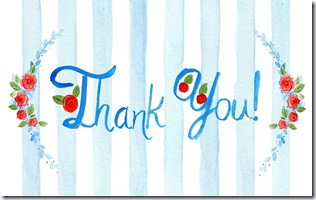Is it worthwhile for published authors to enter writing contests? That depends upon your goal. Here are the pros and cons for you to consider before entering your book in a contest. These are paid competitions, where judges actually read your work, and not the ones at conferences where people vote on their favorite books or authors.
Pros
Gain exposure for your work to new readers
Potential to call yourself an award-winning author
Placement as a semi-finalist or finalist will provide a sense of validation
A winner’s badge will add prestige to your credentials
Cons
The contest fees can be high
Entering contests may be time-consuming
Winning awards won’t help you sell books
Low scores, if feedback is provided, can be demoralizing
Prestigious awards are offered in every genre. In the mystery/thriller field, we have MWA’s Edgars® and the International Thriller Writers contest, the Thriller Awards Competition. These books are read by dedicated judges. Mystery conferences like Left Coast Crime and Malice Domestic have contests, but your book has to be nominated and voted on by attendees.
States also have writing awards you can enter, and so do smaller regional or chapter conferences. For example, there’s the Florida Book Awards competition in my state.
How do you decide which contests to enter? Consider these factors:
• Sponsoring Organization: Will readers or fellow authors recognize this award? Do you care?
• Judges: Are they readers, booksellers, librarians, or other authors?
• Prize: This is a prime consideration since you’ll be spending money to enter the contest. Is it worth the entry fee and effort merely to get a certificate if you win? What types of publicity come along with the award? Do the promises of cash and exposure to industry professionals ring true? Will you get a plaque, medallion, lapel pin, or trophy? Do you have to be present to accept your award, or will the sponsors mail it to you? A digital badge is useful, because you can add it to your book cover and website and use it in your promotional posts. Are printed award stickers available for your print books if you don’t want to redo your cover?
• Cost in Entry Fee: These can range from $25 to over $100 to enter. See if there’s an early bird discount and try to get your book in before then.
• Book Requirements: Does the contest require physical books, which will cost postage, or digital entries?
• Competition: Are there multiple categories so your subgenre is represented, or is one general category applied? For example, can you enter for best cozy mystery or amateur sleuth novel rather than best mystery novel? You’ll have a better chance with narrower categories.
• Categories: Some contests tempt you by offering additional categories with your submission for a reduced fee. Be careful of your spending as costs will add up. Is this to your benefit or more to the contest organizers who make money from each submission?
• Past Experience: If you’ve entered a contest two or three years in a row and your books never place in the finals, or reach the finals but never win, it might be time to save money and move on. Perhaps their judges just don’t appreciate your subgenre or style.
Here’s a watchlist that will help you make an informed decision: Watchdog Desk of the Alliance of Independent Authors
Keeping Track of Entries
How do you find these lesser known contests? Follow your author colleagues and see what contests they’re entering. Look on Facebook at your author friends sites for announcements of contest wins. Also check your local writing organization newsletter. Make a list for your book title of which contests might be appropriate to enter. Be sure to check for your work’s eligibility, entry deadlines, fees, judges and prizes.
When you enter, make a note of the contest name, the sponsor, the costs, the categories you’re entering, the date of submission, the format or number of copies sent, and the dates when finalists and winners will be announced.
In Conclusion
Making the semi-finals or finals of a contest where your book is evaluated against other works is an ego boost. It’s not easy to place against potentially hundreds of other authors, so consider it a well-earned reward if you do place in the top tier. Here are some of the badges I’ve earned and can proudly display on my website book pages.
If the award doesn’t come with a badge, hire a graphic designer to create one for you or make your own.
Be happy to accept your kudos where you can get them and post about your successes. We want to celebrate with you.
Are writing contests for published authors worthwhile? #bookmarketing #pubtip Click To TweetAuthors, what do you think? Have you benefited from entering writing contests?


















